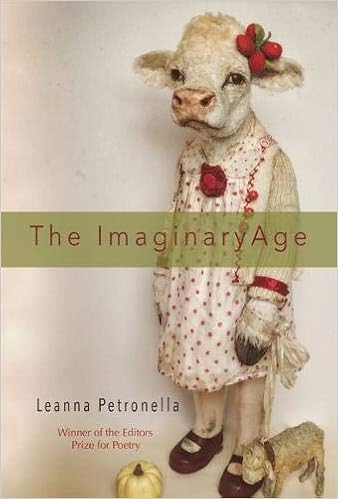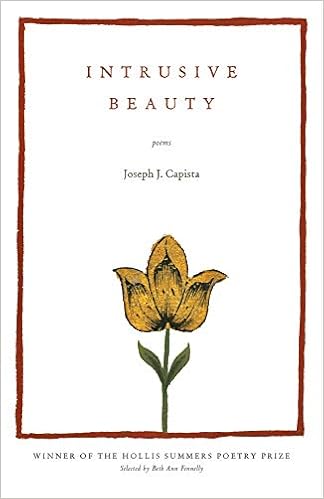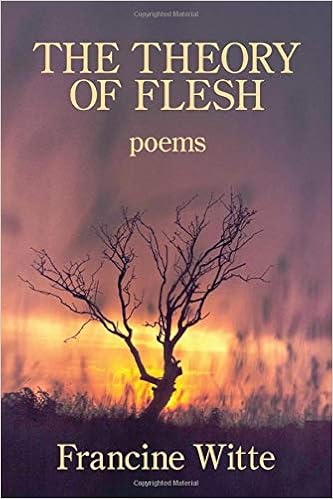 The poems in this section express deep feelings for nature as is characteristic of the genre. The sensory details and expressive language in this section are enhanced with striking imagery and in some of them, deep emotions.
The poems in this section express deep feelings for nature as is characteristic of the genre. The sensory details and expressive language in this section are enhanced with striking imagery and in some of them, deep emotions.
Recipe for Garum is an unusual book: very well written and entertaining. Reading it is a quiet pleasure.
Tag: poetry
A review of Unfinished Child by Lindsey Warren
 Put the idea of reading this book of poetry cover to cover to bed. For the reader to have control over direction but not the journey’s destination makes Lindsey Warren’s inventive debut collection, Unfinished Child, read like real life. But moving through the poems also parallels a “Choose Your Own Adventure” book.
Put the idea of reading this book of poetry cover to cover to bed. For the reader to have control over direction but not the journey’s destination makes Lindsey Warren’s inventive debut collection, Unfinished Child, read like real life. But moving through the poems also parallels a “Choose Your Own Adventure” book.
A review of The Imaginary Age by Leanna Petronella
 The homely, everyday objects of our lives that we take for granted become iconic signposts, saturated with meaning, as time unspools. “My childhood was a safe, dark pocket. Now, nothing feels like my childhood djd.”
The homely, everyday objects of our lives that we take for granted become iconic signposts, saturated with meaning, as time unspools. “My childhood was a safe, dark pocket. Now, nothing feels like my childhood djd.”
A review of The Espionage Act by Jennifer Maiden
 This is work that not only provides a different kind of news — engaging with issues like free speech, democracy, aesthetics and ethics – a continual source of interest for Maiden and one she explores with the full weight of her poetic talent, but also allows the reader to see things from a different, and at times, magic realism perspective.
This is work that not only provides a different kind of news — engaging with issues like free speech, democracy, aesthetics and ethics – a continual source of interest for Maiden and one she explores with the full weight of her poetic talent, but also allows the reader to see things from a different, and at times, magic realism perspective.
A review of Intrusive Beauty by Joseph J. Capista
 Capista is a skilled poet. His verses command the satisfying circularity of those first two poems, the variety of free verse lines, lull of assonance and repetition, questioning of a philosopher’s observations, mesmerizing rhymes occasional or throughout a poem, and pages sprinkled with sonnets and villanelles.
Capista is a skilled poet. His verses command the satisfying circularity of those first two poems, the variety of free verse lines, lull of assonance and repetition, questioning of a philosopher’s observations, mesmerizing rhymes occasional or throughout a poem, and pages sprinkled with sonnets and villanelles.
An interview with Douglas Cole
 The author of The Blue Island and many other poetry collections talks about his work, the influence of being a resident of Washington, why he loves poetry, his awards, and more.
The author of The Blue Island and many other poetry collections talks about his work, the influence of being a resident of Washington, why he loves poetry, his awards, and more.
A review of The Theory of Flesh by Francine Witte
 Like a scientist of existential torment, with a Ph.D. in Angst Studies, Francine Witte spells out the origins of regret, heartbreak and loss in this comprehensive, tender collection of poems.
Like a scientist of existential torment, with a Ph.D. in Angst Studies, Francine Witte spells out the origins of regret, heartbreak and loss in this comprehensive, tender collection of poems.
A review of Giant Steps Edited by Paul Munden and Shane Strange
 There is so much to explore in this wonderful collection: work that stretches the imagination, plays with language, time, and space in order to explore human endeavour, both scientific and artistic – and in many cases the distinction becomes blurred. Strange and Munden have done an exceptional job choosing and structuring poems.
There is so much to explore in this wonderful collection: work that stretches the imagination, plays with language, time, and space in order to explore human endeavour, both scientific and artistic – and in many cases the distinction becomes blurred. Strange and Munden have done an exceptional job choosing and structuring poems.
A review of Year of the Monkey by Patti Smith
 Not many writers could pull off such a diffuse structure but Smith does it beautifully, using her poetic vernacular and pulling the reader in so tightly, we begin to think and perceive in Smith’s fragmentary, hallucinogenic way. The result is strangely exhilarating.
Not many writers could pull off such a diffuse structure but Smith does it beautifully, using her poetic vernacular and pulling the reader in so tightly, we begin to think and perceive in Smith’s fragmentary, hallucinogenic way. The result is strangely exhilarating.
A review of Chronicles in Passing by Carol Smallwood
 Carol Smallwood is to be praised for her skill, perspective, and philosophy over a wide poetic range. Hers is a unique set of senses, capturing sights, sounds, moments, and observations of the everyday world in such a manner that causes the reader to see what is all around him in a fresh, new way.
Carol Smallwood is to be praised for her skill, perspective, and philosophy over a wide poetic range. Hers is a unique set of senses, capturing sights, sounds, moments, and observations of the everyday world in such a manner that causes the reader to see what is all around him in a fresh, new way.